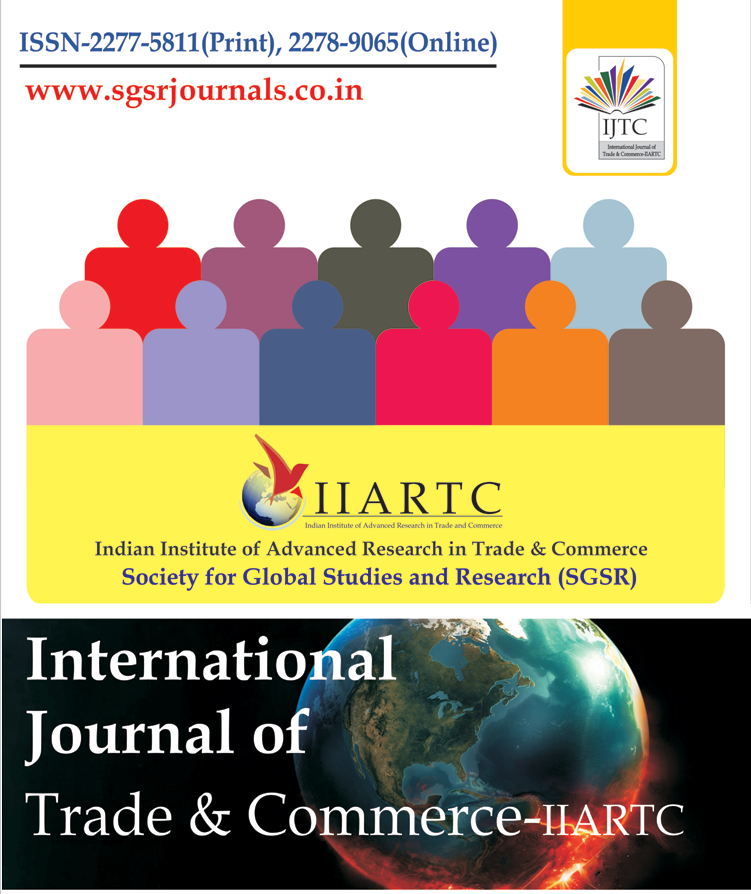Home ⇨ International Journal of Trade & Commerce-IIARTC

International Journal of Trade & Commerce-IIARTC
Impact Factor (IF):5.135 (COSMOS), IF:7.249 (ISRA), IF:3.721 (ISI)
ISSN:2277-5811 (P), ISSN:2278-9065 (O)
Frequency: Half Yearly
Electric Mobility Integration in Indian Urban Planning: Challenges, Opportunities, and Policy Implications
India’s urban transport system is facing unprecedented challenges due to rapid population growth, vehicular congestion, and escalating pollution levels. Against this backdrop, the transition toward electric mobility (e-mobility) offers a promising pathway for sustainable urban development. This study investigates the extent to which electric mobility is being integrated into urban planning in Indian cities. It explores critical challenges such as inadequate charging infrastructure, limited policy coordination, and citizen hesitancy. Drawing upon both primary data collected through surveys in five urban centres—and secondary sources from government and institutional reports, the research applies statistical methods, including factor analysis and regression modelling, to examine the drivers of electric vehicle (EV) adoption. The findings reveal that infrastructure readiness and public policy awareness are strong predictors of urban EV acceptance. The study concludes by offering practical policy recommendations, such as zoning reforms and enhanced fiscal incentives, aimed at creating EV-supportive urban environments aligned with national climate goals.
Author:Shantam Babbar, Rajesh Kumar Raju, Monika Kumari
Abstract:India’s urban transport system is facing unprecedented challenges due to rapid population growth, vehicular congestion, and escalating pollution levels. Against this backdrop, the transition toward electric mobility (e-mobility) offers a promising pathway for sustainable urban development. This study investigates the extent to which electric mobility is being integrated into urban planning in Indian cities. It explores critical challenges such as inadequate charging infrastructure, limited policy coordination, and citizen hesitancy. Drawing upon both primary data collected through surveys in five urban centres—and secondary sources from government and institutional reports, the research applies statistical methods, including factor analysis and regression modelling, to examine the drivers of electric vehicle (EV) adoption. The findings reveal that infrastructure readiness and public policy awareness are strong predictors of urban EV acceptance. The study concludes by offering practical policy recommendations, such as zoning reforms and enhanced fiscal incentives, aimed at creating EV-supportive urban environments aligned with national climate goals.




